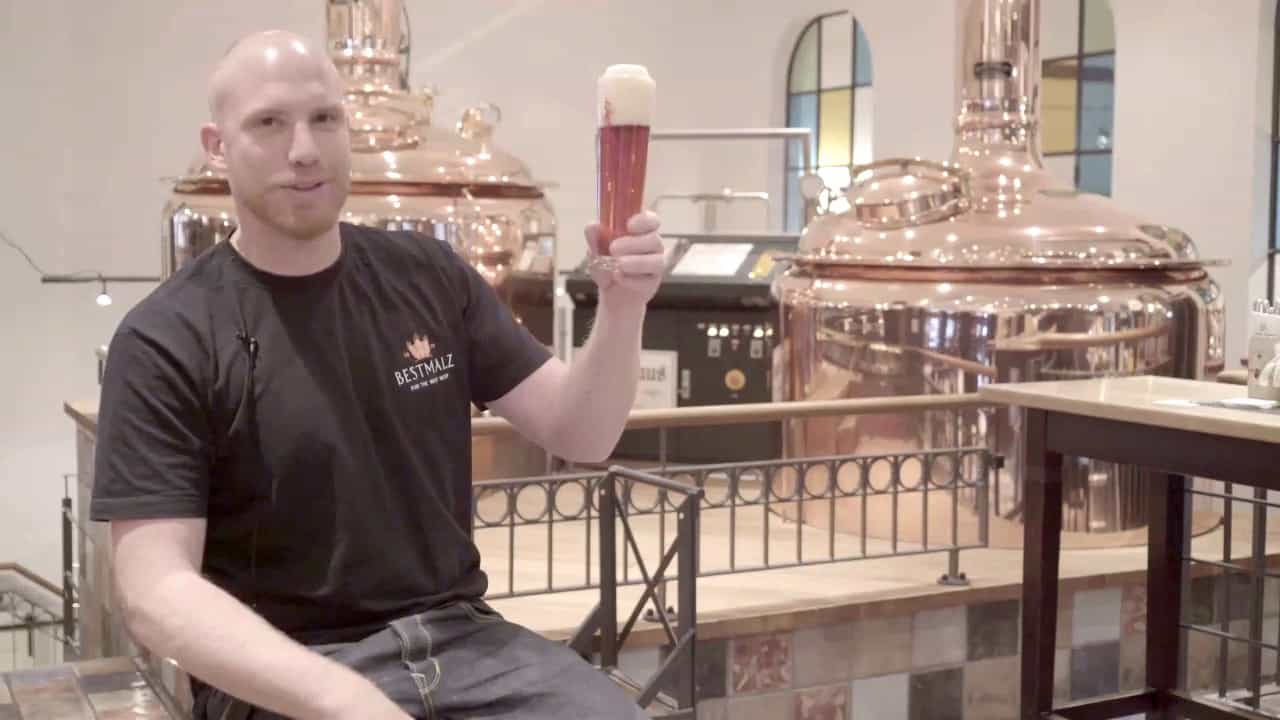A master brewer probably brings to mind somebody – usually male – brewing beer in a large brewing copper or lauter tub. But that falls short of the mark, because the profession encompasses an astonishing range of tasks and areas of responsibility. Steffen Falk from Technical Support at Palatia Malz is one good example of just how diverse the job can be. In an interview, he explains what makes his work so special.
BESTMALZblog: Steffen, what is it you do, exactly?
Steffen Falk: Well, on my business card it says “Technical Support”, and that means first and foremost that I support our customers in technical matters. These might be practical questions about the use of our malts, such as: “I haven’t got enough extract, why might that be?” But I also advise our dealers all over the world and visit breweries with them.
BESTMALZblog: It sounds like your qualification as a master brewer could be useful for that?
Steffen Falk: Absolutely. I studied to be a master brewer in Weihenstephan. I chose the program because I was interested in the content rather than pursuing a specific goal. I had trained as a laboratory chemist and started studying chemistry, but I soon realized that wasn’t stimulating enough. I wanted to study something that also encompassed technology and biology. By chance, I read an article about the degree program in brewing and was immediately fascinated. But I wasn’t aware of the options it opens up – and there are plenty of them! Apart from working in a brewery, many of us go on to work at mineral water springs, juice processing companies or the supplier industry. Or in malthouses! I didn’t discover the joys of brewing until I started studying and did an internship at Heidelberger Brauerei.
BESTMALZblog: What is a typical day’s work for you?
Steffen Falk: I don’t really have a typical working day, but my week is clearly structured: My duties also include occupational safety and quality management, so I spend one day a week visiting each of our plants in Wallertheim and Kreimbach-Kaulbach. My job there involves making sure that the rules on occupational safety are observed, for example, that there are no tripping hazards, no emergency doors are blocked and that protective clothing is worn whenever it is necessary. I also control the implementation of quality standards at the plants. This year, I will also be responsible for energy management, and will advise management on it. The other days of the week are spent at our headquarters in Heidelberg in technical support, helping our customers to get certification and other practical matters.
BESTMALZblog: What do you like about your job? What are the challenges?
Steffen Falk: I have to deal with unforeseen events every day. But as I have worked as a plant manager, in sales and in customer services, there’s not a lot that can shock me. I like the variety and not knowing what I will have to deal with the next day. There is always something new happening. I have to be flexible and there’s not much routine to the job – which suits me just fine! My assignments abroad are also exciting. What particularly fascinates me about the malthouse and the duties of a maltster is the variety: The degree program in brewery and beverage technology is very focused on beer – malt is only dealt with peripherally. I would never have thought that malting could be so complex. The fact that you can make 50 varieties of malt from one kind of barley constantly astounds me. Not to mention the wide range of beers they can be used for!
BESTMALZblog: Thank you for talking to us, Steffen!
Brewer, maltster or engineer?
In a nutshell, In Germany there are two main routes to this profession: a classic apprenticeship or an academic program. An apprenticeship in a company leads to the qualification “brewer and maltster”. As with many training programs in Germany, you can continue your training to become a master brewer or maltster. If you choose the academic path, you can study to be a master brewer or earn a bachelor or master’s degree in Brewing and Beverage Technology. Or you can opt for a two-year program to become a state-recognized Production Manager for Brewing and Beverage Technology, which you can round off with a master’s certificate. A newer option is a dual education combining an apprenticeship with an academic qualification.*
State-recognized academy with several study programs:
https://www.doemens.org/lehre/lehre.html
TUM School of Life Sciences in Weihenstephan:
http://www.wzw.tum.de/index.php?id=46
TU Berlin, Faculty of Brewing Science:
https://www.brauwesen.tu-berlin.de/menue/studium_und_lehre/studiengaenge/
Weihenstephan-Triesdorf University of Applied Science:
https://www.hswt.de/studium/studiengaenge.html
*The information included here is not exhaustive.

